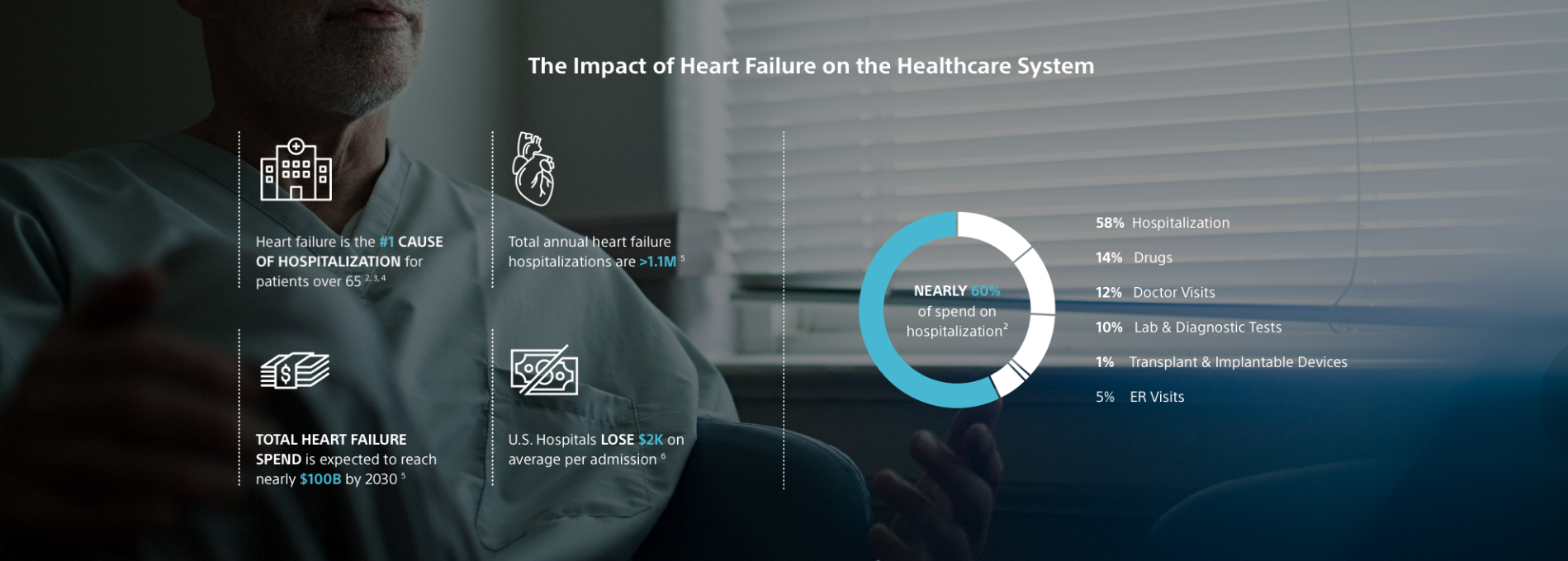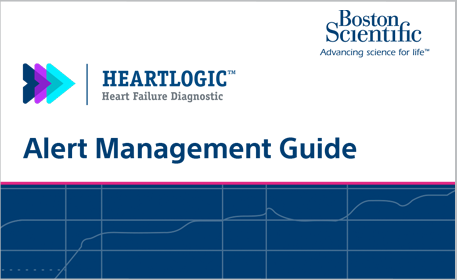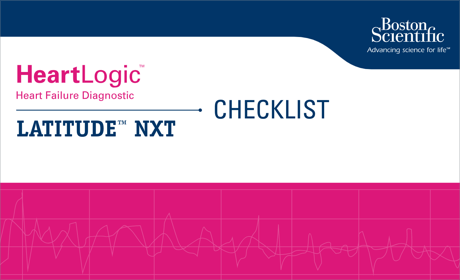
HeartLogic Clinic Workflow
Changing the future of electrophysiology can sometimes mean changing how you do things. As validated in the MultiSENSE Study, HeartLogic has 70% sensitivity in detecting worsening heart failure and a low alert burden of less than 2 alerts per patient per patient year.1 This heart failure diagnostic is designed to help reduce hospitalizations, improve patient lives and enhance clinical efficiencies.

Physician Perspectives

“My hope for the HeartLogic alert is that we’ll be able to better care for our heart failure patients, avoid morbid events such as heart failure hospitalizations and actually treat the exacerbation of heart failure before the patient even knows they have it.”
John P. Boehmer, MD
Featured Workflow Resources

HeartLogic Alert Management Guide
This quick reference guide offers tips to help you implement a three-step workflow for managing HeartLogic alerts, assess the context of the alert using the Heart Failure Management Report and patient discussion, and take clinical action.

HeartLogic and LATITUDE NXT CAM Checklist
This checklist will help clinic account managers (CAM) understand HeartLogic, organize patients into groups that work best for their practice, manage users and monitor patients using the LATITUDETM NXT Remote Patient Management System.

Stay Up to Date
Sign up for periodic emails and receive a HeartLogic fact sheet to share with your patients’ care teams.
Physician Perspectives

“What we’d like to do is actually understand when they have worsening problems before they have symptoms, so then we can act on them.”
Adrian Hernandez, MD, FMHS

HeartLogic Training
Find an interactive CE course, hands-on workbook and other tools to help you use HeartLogic in your practice.

Workflow Resources
Access technical guides, checklists and other resources to help you implement and use HeartLogic.
LATITUDE NXT™ Remote Patient Management System: Indications, Safety and Warnings
Resonate™ ICD: Indications, Safety and Warnings
Resonate™ CRT-D: Indications, Safety and Warnings
References
1. Boehmer JP, Hariharan R, Devecchi FG, et al. A Multisensor algorithm predicts heart failure events in patients with implanted devices: results from the MultiSENSE study. JACC Heart Fail. 2017 Mar;5(3):216-25.
2. https://www.hcup-us.ahrq.gov/reports/statbriefs/sb162.jsp
3. Agarwal SK, Wruck L, Quibrera M, et al. Temporal trends in hospitalization for acute decompensated heart failure in the United States, 1998-2011. Am J Epidemiol. 2016;183(5):462-470.
4. https://www.heartfailure.com/hcp/heart-failure-cost.jsp
6. MedPar 2013, MS-DRG 291, 292, 293

